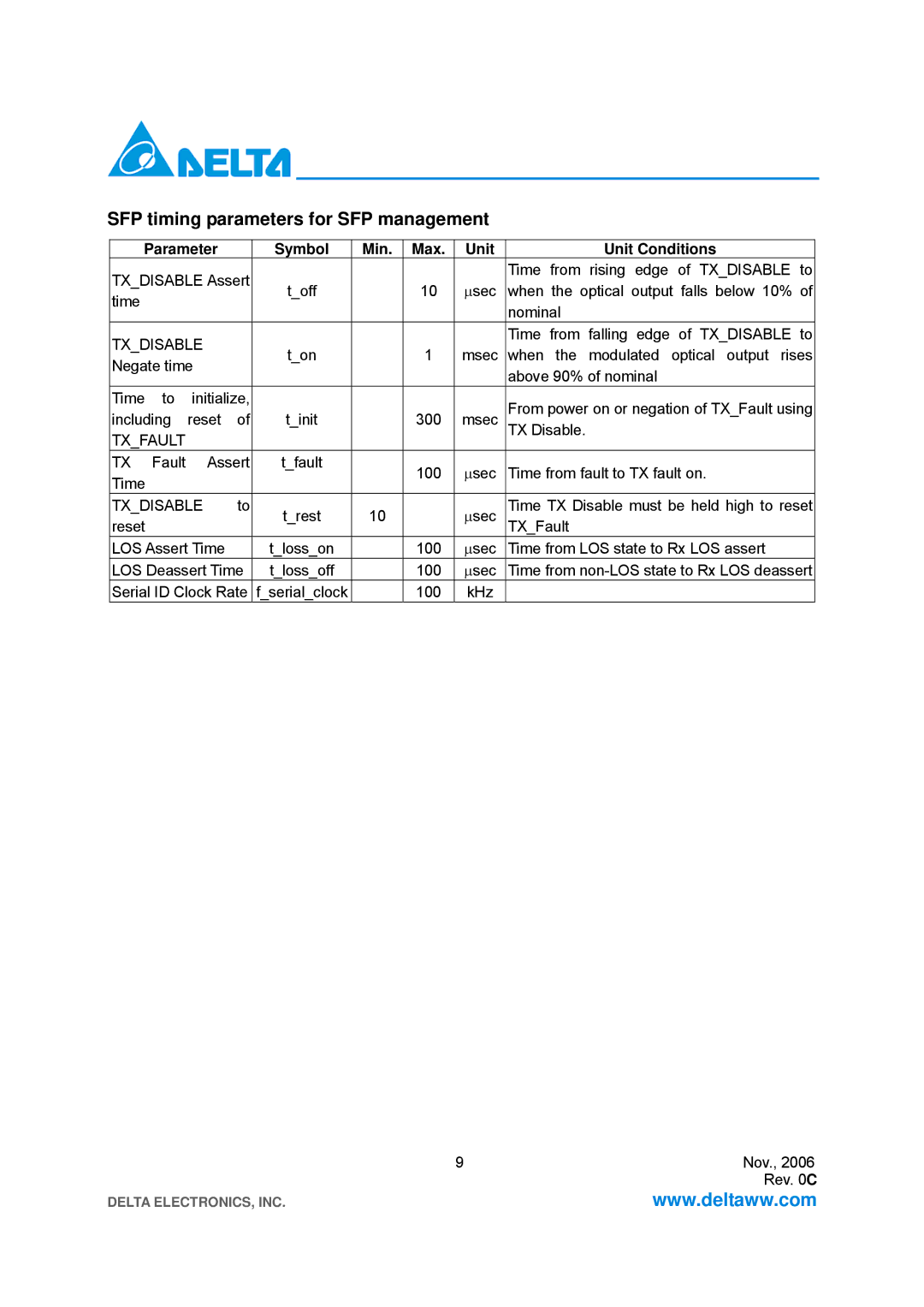LCP-1250A4FSRT, LCP-1250A4FSRH, LCP-1250A4FSR specifications
Delta Electronics has established itself as a leader in the power supply industry, and its LCP-1250A4FSRH, LCP-1250A4FSR, and LCP-1250A4FSRT models showcase cutting-edge technology and reliability for various applications. These power supplies are designed to meet the demanding requirements of contemporary electronic systems, especially in data centers, telecommunications, and industrial applications.One of the most prominent features of these models is their high efficiency. With efficiencies typically above 94%, users can benefit from reduced energy costs and minimized heat generation, which is paramount in high-density environments. This efficiency also contributes to lower carbon footprints, aligning with global sustainability goals.
The LCP series is equipped with advanced power management capabilities, allowing for effective load sharing and redundant operation. This is particularly important in mission-critical applications where reliability cannot be compromised. The units support N+1 redundancy, ensuring that even if one unit fails, the remaining units can take over seamlessly without disrupting the system.
In terms of design, these power supplies feature a modular approach, which allows for easy scalability. Users can configure their systems according to their specific power requirements by adding or removing modules as needed. This modularity, coupled with hot-swappable capabilities, enables quick maintenance and upgrades without downtime, enhancing overall system resilience.
The LCP-1250A4FSRH, LCP-1250A4FSR, and LCP-1250A4FSRT models come equipped with sophisticated monitoring and control technologies. Users can track performance metrics through various interfaces, ensuring that the power supply operates optimally under different loads. The power supplies also feature built-in protection mechanisms against overcurrent, overvoltage, and thermal events, safeguarding both the equipment and the power supply itself.
Another significant characteristic is their compact design, which allows integration into space-constrained environments. The units are engineered to maximize airflow, thereby minimizing thermal build-up and enhancing performance stability.
In summary, Delta Electronics' LCP-1250A4FSRH, LCP-1250A4FSR, and LCP-1250A4FSRT are exemplary power supply solutions that combine efficiency, reliability, and scalability. With their advanced features and robust technologies, they are ideally suited for high-performance applications requiring consistent and dependable power delivery. These models not only meet today's demands but are also designed to adapt to the future needs of evolving electronic systems.

